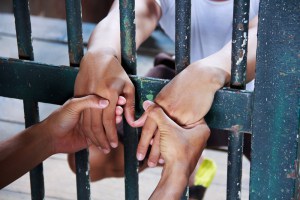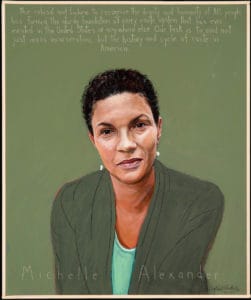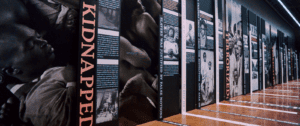Editor’s Note: The film Just Mercy opens in theaters everywhere on January 10th. Featuring the story of lawyer and Eastern University graduate Bryan Stevenson, the film is a moving and powerful commentary about racial injustices on death row. In anticipation of the film’s release, we’re re-running Harold Dean Trulear’s reflection on his time spent incarcerated.

You tell believers to remember us in prison, but it is not clear to me that your church really does…we are useful objects of outreach and service, a duty to be checked off the list.
Over the years I have devoted a significant quantity of writing to the challenge of incarceration and to churches’ role and responsibilities in light of the record numbers of men, women, and young people who populate our nation’s jails and prisons. But about five years ago, I experienced a different dimension of our criminal justice system when I became an inmate myself. As a recovering and redeemed alcoholic, I take full responsibility for the actions that led to my time in jail.
And, in retrospect, I can gratefully claim the truth of God’s promise to work “all things together for good” for me. I learned much about the conditions of incarceration and grew as a human being. As I prepared to leave, I wrote the reflection below, both to capture a cathartic moment in the transition back home and to express a deep yearning for the church to increase its efforts and advocacy on behalf of all those affected by crime and incarceration. It is an honest prayer, with gratitude for God’s faithfulness to me, and petition for God’s church to “remember those who are in prison as imprisoned with them” (Hebrews 13:3).
I wrote this reflection to express a deep yearning for the church to increase its efforts and advocacy on behalf of all those affected by crime and incarceration.
Although I will not be for much longer, today, at the moment that I write this, I am inmate #10002648, George W. Hill Correctional Facility, Delaware County, PA. Not the Rev. Trulear who pastored a church, not Dr. Trulear who commanded the attention of seminary students at Howard Divinity School, but an inmate with a number, sitting in a discharge cell at the end of a year of jail, furloughs, and work release. And thanking you, Lord.
For I am not forgotten. As I look back over these past 12 months I see your care. You gave me a gracious sentence that allowed me to be home to care for my family Monday through Friday for 40 of the 52 weeks. You have been beside me my entire time here. You taught me what it means to be a human being, using the cells and the cubes, the locks and the wire to remind me starkly that I am not in control.
I am not forgotten. You see each inmate in every jail cell around the world. You tell believers to remember us in prison, but it is not clear to me that your church really does. Some remember to train a few folks to come in once a week or month. But I don’t know if they come because they remember us as brothers and sisters who hurt and yearn not to be forgotten, or because they remember to serve God and we are useful objects of outreach and service, a duty to be checked off the list.
I am not forgotten. When I have, in spite of your promises, felt forgotten, I have had to encourage myself in you, remind myself of the truth of your Word. I have had to remind others also, those who do not receive family visits as I did or mail from church members as I did, my people praying for me by name and not just by category. So many with me feel forgotten, because they are. In the past they were even forgotten by me, a one-time pastor not far from this jail who purported to shepherd a church which included five women whose sons served time with me this year. I don’t know which is worse—the shame of my incarceration or the shame of meeting their sons in here instead of in church. The church doesn’t so much need an outreach to the prison as it needs an outreach to those members whose loved ones are in jail, to help reconnect them with each other and with their God. We have failed those who sit in our pews and suffer in silence because they cannot share the pain of an incarcerated son, daughter, spouse, dad, mom. They feel forgotten…
But I am not forgotten. Sitting here alone in a solitary, trash-strewn holding tank waiting for my discharge, I do feel forgotten—Does the jailer remember I am in here? Are they really going to let me out? Though I have paid an important debt, served time I deserved, and experienced the grace of two years without a drink, I have this last chance to remember, right now, what it feels like to be forgotten. Do they know I am here? Does the larger church?
I am not forgotten. Looking at this dirty cell, I recall author, prison minister, and former prisoner Lennie Spitale coming to our jail church and reminding us that Paul’s letter to the church at Philippi was written in such a place. Spitale offered us this as a reminder that we are not forgotten. Tonight, my cellmate read Philippians 4 with me again.
I am not forgotten, but one last time, before I leave this place, allow me to feel the pain of the forgotten. Lord, help me not to forget.
Harold Dean Trulear is associate professor of applied theology at Howard University School of Divinity in Washington, DC, and director of the Healing Communities Prisoner Reentry Initiative at the Philadelphia Leadership Foundation (HealingCommunitiesUSA.org).


